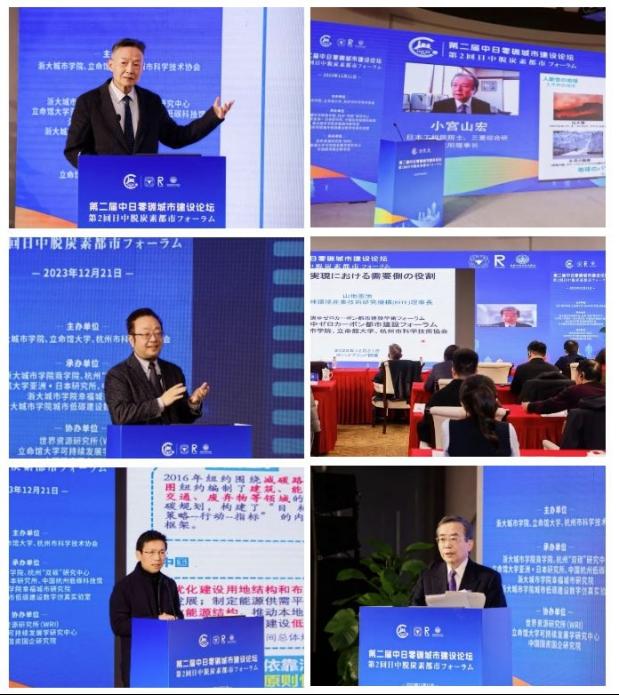The Second Sino-Japanese Zero Carbon City Construction Forum, jointly organized by Hangzhou City University, Ritsumeikan University in Japan, and the Hangzhou Association for Science and Technology, was held on December 21. Participants from both China and Japan gathered at the Low Carbon Technology Museum in Hangzhou, China, through a combination of online and offline methods to share advanced cases and research results in zero carbon city construction, and to seek the path to sustainable urban development and create a new pattern of green development.
The forum was divided into three sections: Academic Seminar on Zero Carbon City Construction, Conference on Urban Low Carbon Construction and Sustainable Development Research Results, and the Round-table Forum on Zero Carbon Cities and Sustainable Development. The forum was hosted by Academician Zhou Weisheng from Ritsumeikan University, and featured speeches from several top experts and scholars from both China and Japan, including Academician Qiu Baoxing, former Vice Minister of Housing and Urban-Rural Development of China, Academician He Kebin, Dean of the Institute of Carbon Neutrality at Tsinghua University, and Academician Yamaji Koji, the 28th President of the University of Tokyo. They discussed the strategies and pathways for zero-carbon city construction.

During the event, experts conducted comprehensive discussions on a series of key issues in the field of zero-carbon city construction, including the strategic path to achieving comprehensive carbon neutrality, specific actions that cities should take in the process of achieving “dual carbon” goals, the synergistic approach to achieving clean air and sustainable development, the crucial role of demand-side actors in carbon neutrality, the importance of land spatial planning in promoting low-carbon development, and the construction strategies for zero carbon cities in the context of addressing the global climate crisis. Experts provided scientific solutions and policy recommendations tailored to the practical needs of urban sustainable development, aiming to provide feasible pathways for addressing climate change and promoting sustainable development, and offering valuable references for future policymaking and practical operations.